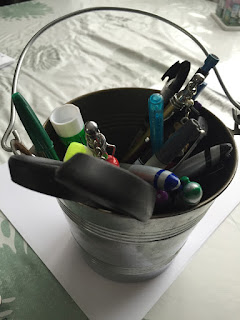Poetic latitude.
He notes that he has jumped up three lines on the map...
He couldn't do that otherwise.
He is aware of rewinding his thoughts.
Where is the order in this?
He keeps wanting to escape the page.
What space would these words take up?
How might they move?
What would be their destination?
What space would these words take up?
How might they move?
What would be their destination?
He keeps wanting to transcend the physical space.
Hazel Groves.
There is a grassy bank above him.
He hesitates an instant.
What is the name for the densely grown trees up there?
He knows it.
He knows it.
It escapes him.
The word escapes him.
He makes space, why does he do so?
He cuts up the lines to give them air.
What are those trees?
What are those trees?
The word comes back to him.
They are hazel.
It is a hazel grove.
Hazel growth, hazel grove.
The place is not quite as it seems to you.
The place is not literal.
The place is inhabited.
It contains signs that only he can read.
Mapping sources
There is a bag of hazel nuts that his daughter is collecting.
Not there, not there.
She is at home.
NOT
now.
now.
NOT
now.
now.
She is years younger in another home.
He regrets the hazel hedge in that other home.
He regrets its vibrant growth.
He regrets its vibrant growth.
Try as he may, he is captured an instant by the hazel grove.
He is its prisoner.
He returns to the page.
It will not open.
It will not open.
There is anger in his gestures as he types the letters.
How can you hear that sound?
That's it.
You will hear my pace now.
The peace of my fingers typing on the board.
Far away from the hazel grove.
Far away from the hazel grove.
The sound is foregrounded.
The sou...he stops.
The os....he stops.
The sound of the fingers (he typed finders and corrected it) will be yours.
How will you know to make sense of the rhythm.
(how many bloody times does he get that word's spelling wrong?)
How did I get here?
He wonders....
I was setting out to make a map.
There is so much to show.
There is so much to tell you.
There is ....
He hesitates and wonders.
"Is it finished now?"
"Is it finished now?"
Will that be the map?
How will you find me?
How will you follow me?
You shall not.
You shall not.
I am .....(he hesitates)
I am .....(he hesitates)
With you in this silence, this silence, these finger beats, fingers beating a hard surface.
It is a lie.
It is a lie.
It is a lie.
We are standing together.
You are behind me.
Looking at the hazel grove.
It exists now.
In our map.
It is over now.
He stops the recording.
He hesitates.
Tapping Sounds.









a poem
ReplyDeletehttps://notegraphy.com/dogtrax/note/2540084
awe
Deleteand a poem
ReplyDeletehttps://notegraphy.com/dogtrax/note/2540090
awe
DeleteAnd a poem
ReplyDeletehttps://notegraphy.com/dogtrax/note/2540094
A WE
Delete